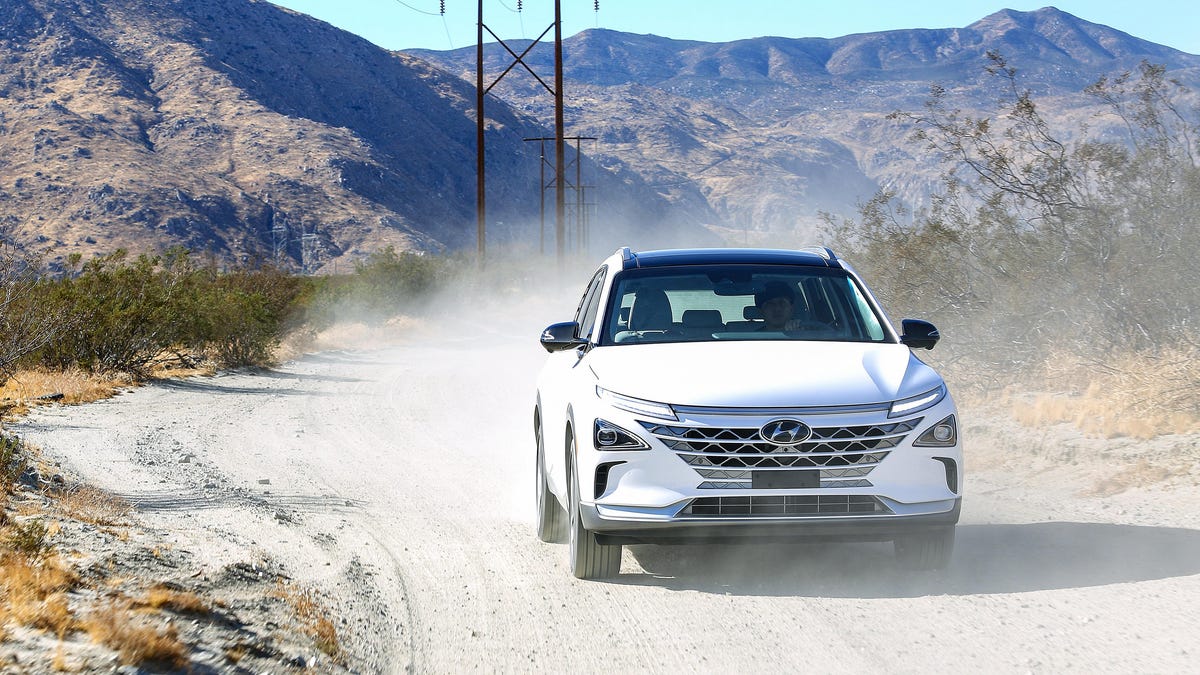Nearly 90 years ago, a little thing called the Hindenburg Disaster ignited public understanding of the volatility of the most abundant element in our universe, hydrogen. As we continue the slow crawl to using more sustainable sources of energy, hydrogen has come back into the picture as a potential alternative fuel for the dirty business of transportation. Hyundai’s fuel cell–powered SUV, the Nexo, is one of three hydrogen vehicles on sale today, but its latest recall may besmirch its image.
Fuel-cell vehicles store their liquid hydrogen gas in pressurized tanks, and the Hyundai Nexo features a safety device called a Thermally-activated Pressure Relief Device (TPRD) that can vent hydrogen gas into the atmosphere if the tanks overheat to prevent over-pressurization. The TPRD consists of a glass bulb designed to fracture and release pressure at a predetermined temperature to prevent more serious issues. According to NHTSA documents, the TPRD can develop micro-cracks that can cause the bulb to break and release hydrogen under normal operating conditions. If the bulb breaks, a loud wind-like noise will be emitted and a white cloud of hydrogen gas will appear at the rear of the vehicle. The fuel gauge will also rapidly deplete to reflect the loss of gas and a malfunction light will appear on the dashboard.
The white cloud of hydrogen gas that appears behind a Nexo when the TPRD fails is highly volatile, and if an ignition source is present there is a risk of fire. Hyundai is recalling 1,545 Nexos to replace the glass TPRD with a metal one, though it estimates just one percent of the recalled vehicles have the defect. The new metal units were installed from the factory in Nexos produced on or after May 21, 2024, so newer Nexos are exempt from the recall.
Hyundai says owners of affected vehicles can continue driving their Nexos, but recommends that owners park their car away from buildings or other structures. All affected owners will be notified by mail on December 10, and the part will be replaced for free. Click here to visit the NHTSA website to see if your vehicle is currently affected by any recalls.

